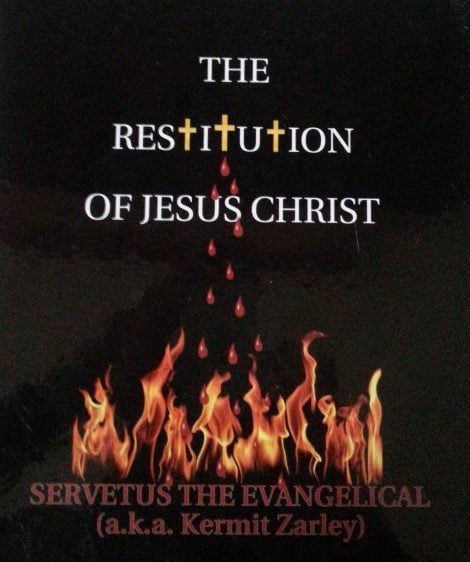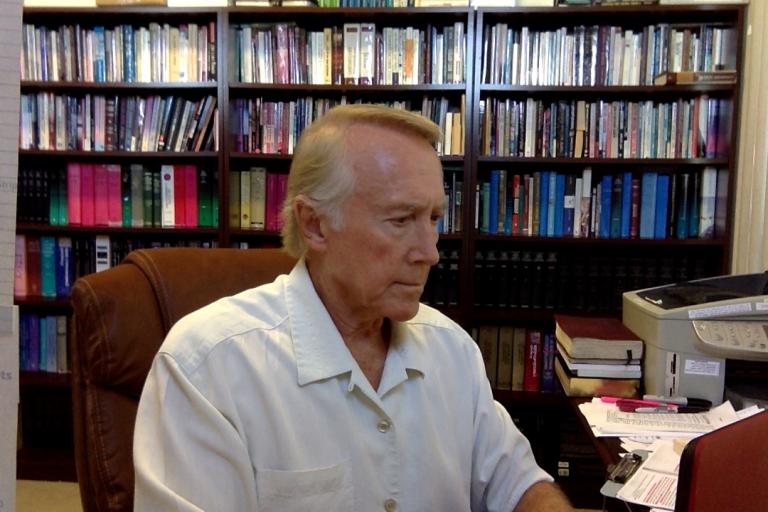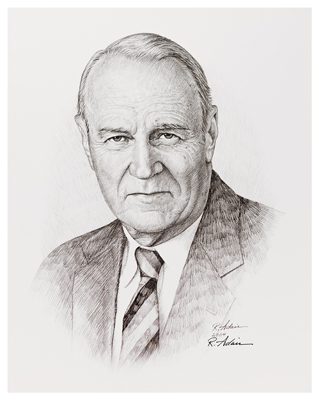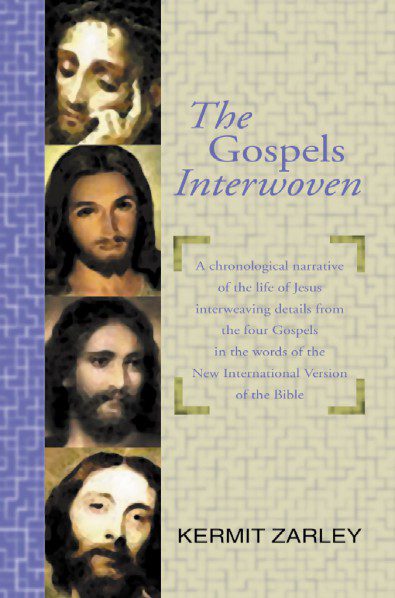 The following is the beginning of my treatment of Rev 1.8 in my book, The Restitution of Jesus Christ:
The following is the beginning of my treatment of Rev 1.8 in my book, The Restitution of Jesus Christ:
Despite such strong evidence in The Revelation that Jesus Christ is not God, a bare few traditionalist expositors assert otherwise concerning Rev 1.8.[1] This passage reads as follows in the NASB: “‘I am the Alpha and the Omega,’ says the Lord God, ‘who is and who was and who is to come, the Almighty.’” These traditionalists assume that Jesus Christ is the speaker in v. 8 because He is the subject of the three previous verses.
In modern times, nearly all scholarly authorities on the book of Revelation have interpreted the speaker in Rev 1.8 as God the Father, not Jesus Christ.[2] And they usually don’t even deem it necessary to substantiate this interpretation. G.R. Beasley-Murray says of Jesus therein, “Older expositors sometimes thought that He is the speaker here also, but clearly the view is mistaken; it is spoken by the ‘Lord God’ (RV) … the Almighty,” which he regards as God the Father.[3] And Hans Georg Link states, “In Rev 1:8 God is the subject of the sentence,… while in Rev 1:17f. the Son of man speaks.”[4]
The following reasons affirm that God the Father is the speaker in Rev 1.8:
- There is no logical reason why the author, John the Revelator, could not have changed speakers immediately following v. 7.
- The same words that describe the speaker in v. 8—“who is and who was and who is to come”—also describe God the Father in both v. 4 and Rev 4.8.
- The expression, “Lord God, the Almighty” (Gr. kurios ho theos ho pantokrator), occurs six times in The Revelation,[5] and “God, the Almighty” (Gr. tou theou tou pantokratoros), occurs twice therein.[6] The Greek word pantokrator means “ruler over all,” and it only occurs one other time in the Greek NT, in 2 Cor 6.18 (cf. Amos 3.13). Aside from Rev 1.8, scholars concur that in all seven other instances in The Revelation, pantokrator refers only to God the Father. The best example is Rev 21.22 because it juxtapositions God and Christ and makes God ruler over all, including over Christ. It reads as follows: “the Lord God, the Almighty, and the Lamb.”
- Due to slight MS variance in Rev 1.8, the TR has only kurios and therefore reads only “Lord” in the AV. But ms authority heavily favors kurios ho theos, as rendered in all modern Greek NTs, so that all modern English versions have “the Lord God.”
- God’s self-annunciation in v. 8 designedly follows the description of the second coming of Christ, in v. 7, because it is God the Father who will orchestrate that event.
[1] E.g., Athanasius, Orations Against the Arians, 3.4; John F. Walvoord, The Revelation of Jesus Christ (Chicago: Moody, 1966), 40; Josh McDowell, More Than a Carpenter (Wheaton, IL: Tyndale, 1977), 11.
[2] E.g., R.H. Charles, The Revelation of St. John, With Introduction, Notes and Indices, 2 vols. (Edinburgh: T. & T. Clark, 1920), 1:20; George Eldon Ladd, A Commentary on the Revelation of John (Grand Rapids: Eerdmans, 1972), 29; Robert H. Mounce, The Book of Revelation (Grand Rapids: Eerdmans, 1977), 73; G.R. Beasley-Murray, “The Revelation,” in NBC (1970), 2nd ed., 1170; idem, The Book of Revelation, 59-60; Wilfrid J. Harrington, Revelation, in SPS (1993), 16:47; G.B. Caird, New Testament Theology, 193; P.R. Carrell, Jesus and the Angels, 116; R. Bauckham, The Theology of the Book of Revelation, 25, 50; C. Tuckett, Christology and the New Testament, 183; D.E. Aune, Revelation 1-5, 58.
[3] G.R. Beasley-Murray, “The Revelation,” 1170.
[4] Hans Georg Link, “ego eimi,” in DNTT 2:282.
[5] Rev 4.8; 11.17; 15.3; 16.7; 19.6; 21.22.
[6] Rev 16.14; 19.15.
………………..
To see a list of titles of 130+ posts (2-3 pages) that are about Jesus not being God in the Bible, with a few about God not being a Trinity, at Kermit Zarley Blog click “Chistology” in the header bar. Most are condensations of my book, The Restitution of Jesus Christ. See my website servetustheevangelical.com, which is all about this book, with reviews, etc. Learn about my books and purchase them at kermitzarley.com. My books are: The Gospels Interwoven (1987); Palestine Is Coming: The Revival of Ancient Philistia (1990); The Third Day Bible Code (2006); The Restitution of Jesus Christ (2008); Warrior from Heaven (2009); Solving the Samaritan Riddle: Peter’s Kingdom Keys Explain Early Spirit Baptism (2015).










